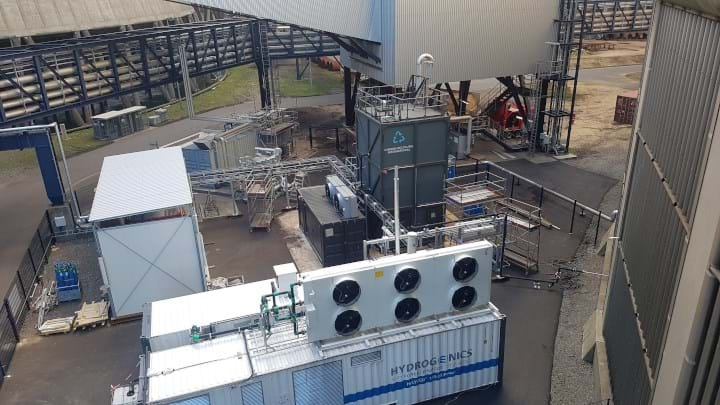CRI successfully demonstrates chemical storage with renewable methanol

CARBON Recycling International (CRI) has successfully shown that its renewable methanol can be used for chemical energy storage of surplus renewable energy.
CRI was founded in 2006 in Iceland and developed a process to convert CO2 and hydrogen directly into methanol. Hydrogen is produced via electrolysis from renewable electricity, and then catalytically reacted with CO2 from a waste gas stream. The technology to produce renewable methanol has already been successful at industrial scale in Iceland.
Methanol is a key feedstock in the chemicals industry and is typically produced from fossil fuels, emitting 0.7–3 t of CO2 per 1 t of methanol produced. The CRI method uses 1.3 t of captured CO2 for every 1 t of methanol. Methanol can also be used as a carrier to store chemical energy from surplus renewable energy. It is much cheaper to use for energy storage compared to hydrogen and it can use existing infrastructure.
CRI, along with the EU Horizon 2020 project consortium MefCO2, have now completed the demonstration phase at a facility in Niederaussem, Germany to show that chemical storage is possible on an industrial scale. CO2 was captured from RWE’s thermal power plant in Niederaussem, and CRI’s technology was used to produce methanol. This was then used for denitrification at a German wastewater facility.
The 1 t/d methanol demonstration plant showed that CRI’s reactor can respond to fluctuations in available hydrogen due to the variability of renewable power. It could also adapt to fluctuations in methanol synthesis and the conversion efficiency of the reactor wasn’t affected by the fluctuations.
Ingolfur Gudmundsson, CRI’s Chief Executive Officer, said: “Transforming excess electricity into e-methanol and thus a valuable chemical and fuel which can be easily stored, transported and used with current infrastructure, answers one of the key challenges to the continued growth of power generation from renewable sources.”
Recent Editions
Catch up on the latest news, views and jobs from The Chemical Engineer. Below are the four latest issues. View a wider selection of the archive from within the Magazine section of this site.




